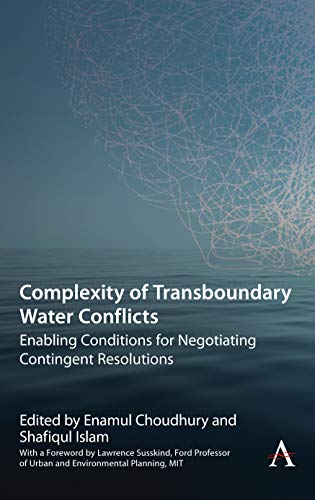
Complexity of Transboundary Water Conflicts: Enabling Conditions for Negotiating Contingent Resolutions PDF
292 Pages·2018·3.1144 MB·other
Most books are stored in the elastic cloud where traffic is expensive. For this reason, we have a limit on daily download.
Preview Complexity of Transboundary Water Conflicts: Enabling Conditions for Negotiating Contingent Resolutions
Description:
'Transboundary Water Management as a Complex Problem'seeks to understand transboundary water governance as complex systems with contingent conditions and possibilities. To address those conditions and leverage the possibilities it introduces the concept of enabling conditions as a pragmatic way to identify and act on the emergent possibilities to resolve transboundary water issues. Based on this theoretical frame, the book applies ideas and tools from complexity science, contingency and enabling conditions to account for events in the formulation of treaties/agreements between disputing riparian states in river basins across the world (Indus, Jordan, Nile, Ganges, Brahmaputra, Colorado, Danube, Senegal and Zayandehrud). It also includes a section on scholars' reflections on the relevance and weakness of the theoretical framework. The book goes beyond the conventional use of the terms 'complexity', 'contingency' and 'enabling conditions' and anchors them in their theoretical foundations. The argument distinguishes itself from the conventional meaning and usage of the terms of necessary and sufficient conditions in causal explanations. The book's focus is to identify conditions that set the stage to move from the world of seemingly infinite possibilities to actionable reality. Three enabling conditions - active recognition of interdependence, mutual value creation through negotiation and adaptive governance through learning - are identified and explored for their meaning and function in specific transboundary water disputes.
See more
The list of books you might like
Most books are stored in the elastic cloud where traffic is expensive. For this reason, we have a limit on daily download.
